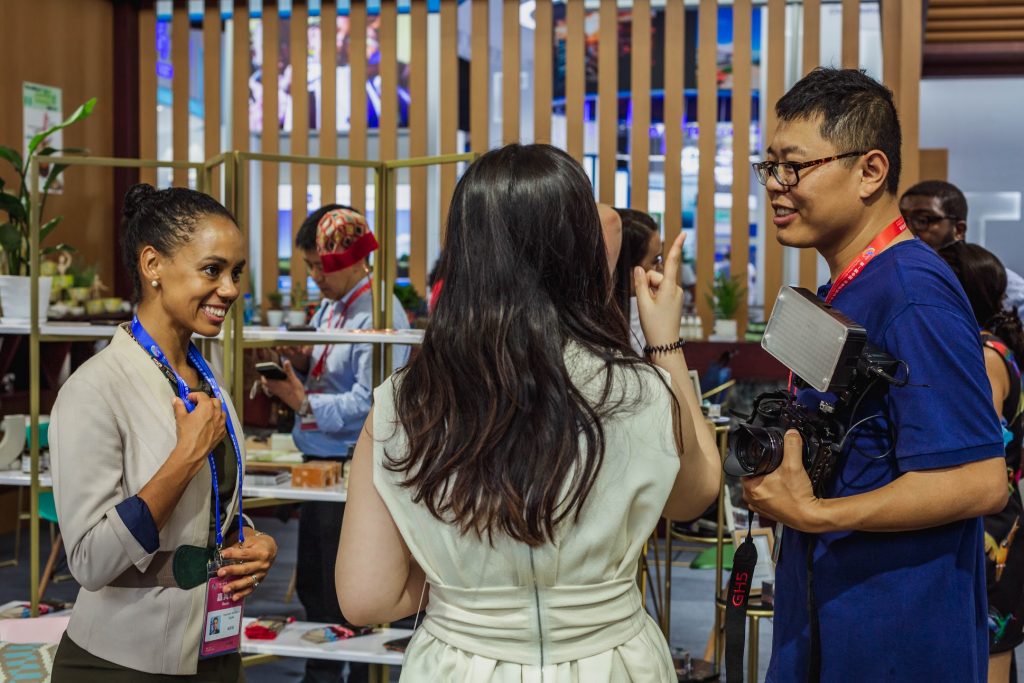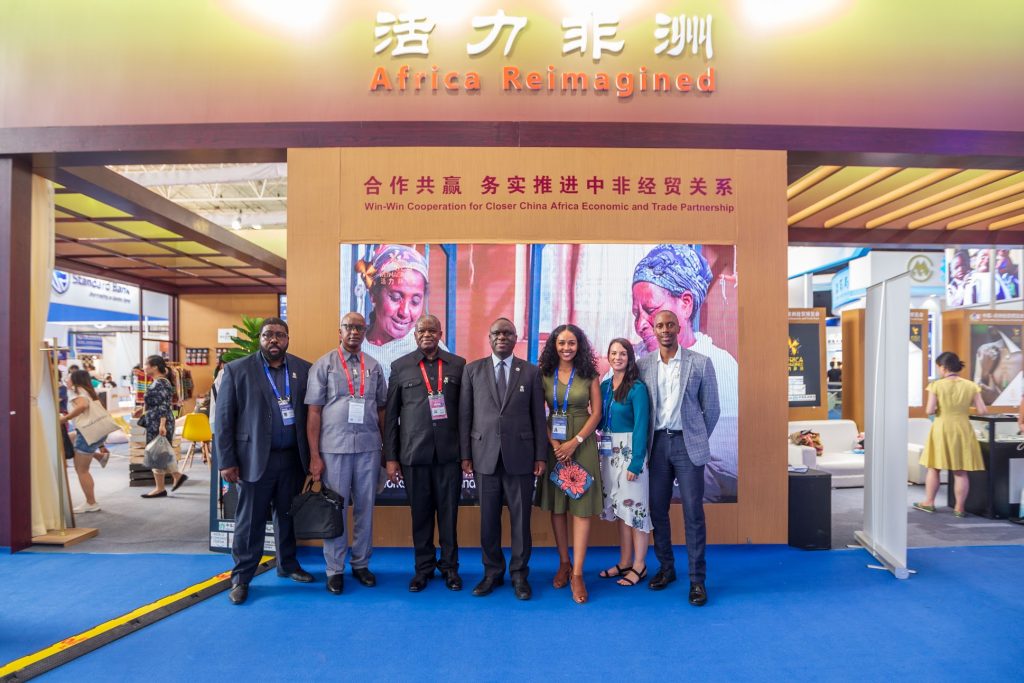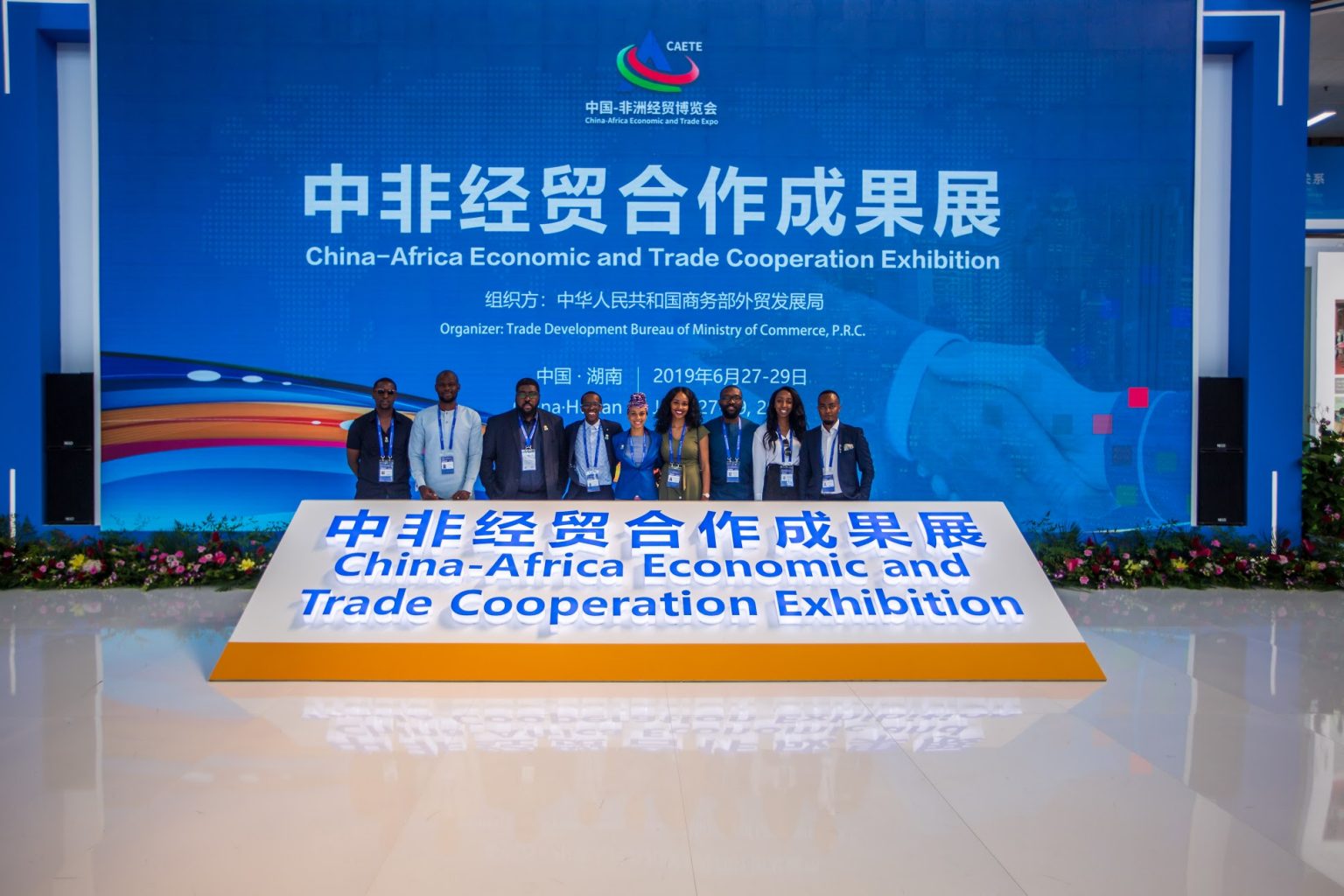Who We Are?
At Africa Reimagined we firmly believe that ‘aid’ or development cooperation is not the best answer to sustainable development in Africa. Solving economic and social problems in poor and middle-income countries requires structural change – in trade, investment, and people. We believe in a holistic approach – looking at all areas of development, beyond aid, and what role ALL actors can play – not just governments, and not just actors in one part of the world.
China is a key player in this and since 2008 has become the African continent’s largest trade partner. And for the 53 African countries with diplomatic relations with China, there has been heavy investment in infrastructure and development, and undeniably this has contributed to Africa’s economic development and progress towards some of the Sustainable Development Goals (SDGs). However, there has been a stark imbalance in the trade composition between China and 40 of these African countries. This stark trade imbalance severely affects the capacity of African countries to create jobs, earn foreign exchange, and develop sustainably to cut poverty – calling for building a more sustainable Africa-China relationship that alleviates the acute trade imbalance.
This is why at Africa Reimagined, we designed and executed our pilot Bespoke China Market Entry Programme, which brought 7 exciting, innovative and sustainable African brands to China. From jewellery to fashion, and to tea and skincare, we brought together these SMEs to disrupt the stereotype of African products and help their ambitious CEOs understand how to enter the vibrant and ever-growing Chinese consumer market.
China-Africa Economic and Trade Cooperation Expo
Over 10 days across 3 cities (Beijing, Changsha, and Dalian), we introduced these brands to the Chinese market, beginning with the China-Africa Economic Trade Expo. Here, our brands had the chance to advertise and sell their products directly to consumers, as well as interact with other influential figures and businesses in their field.
At the expo, we found that Chinese consumers DO have an appetite for luxury African products.Over the duration of the expo, more than 90% of the products were sold out, and multiple inquiries were made about further distribution channels. Many customers bought multiple items and had a genuine interest in understanding more about the history of the product and the brand. Others put orders in for more product. Our experience demonstrated that high-end, luxury African products do have a place in the competitive Chinese consumer market and CAN take a slice of the estimated $5.6 trillion projected sales in China (2019) – around $100BN more than the United States.

Challenges for African brands to enter the Chinese market
Despite the clear potential we found for African brands in China, we also learned that, among others, African businesses typically face three major challenges in China:
- African brands are looking the wrong way
Whilst designing and implementing the programme, we were in touch with over 50 African brands in multiple sectors. Through this it became clear that most African businesses are not aware of the vast opportunities the Chinese market can provide for growing their businesses. Most African SME’s are looking to the USA, where consumption is rising by 2% year on year, yet in China it’s increasing 16% per year.
- African brands need assistance to break into the Chinese market
We found that these businesses urgently need strategic support to navigate and enter the complex Chinese market, as currently no online or offline platforms exist that promote high-end luxury African goods and products in China. Moreover, it is clear that many African businesses are significantly unprepared and resource-poor to enter the Chinese market. If in China, most are operating informally or in joint ventures that provide for poor intellectual property protection. Many do not understand Chinese market trends (let alone language) and opportunities nor the official requirements. The Chinese market is vast, opaque and regulated heavily, thus many foreign companies rely on trade facilitation organizations to navigate doing business in China.
- African brands need to be marketed differently across China
There is a severe lack of awareness in China about Africa. Ask any ordinary Chinese person which African countries they have heard about, most will reply Kenya – for animals; Nigeria – for oil and its large population; South Africa – for extractives and mining; and Ethiopia – as a new manufacturing destination for apparel. This needs to change and during our 10-day programme we worked alongside many media outlets from CGTN to The Global Times to shift the narrative and educate the public about the innovative side of Africa.
Africa Reimagined tackles each of these three challenges, and many more. Our pilot program at the China-Africa Economic Trade Expo demonstrates the bright future for African high-end brands in Chinese markets. We’re here to turn that future into a reality.
What’s Next?
Stay tuned for more blog posts about other parts of our pilot program! These brands were all impressed by the response in China. Some are looking at concrete next steps to enter China, including brand trademarking, e-commerce platforms, distribution partnerships – and some are already shifting their marketing budgets towards China.
As for Africa Reimagined, we are preparing to launch our services for interested African brands. Check out the rest of our website to see what we can help you accomplish. Contact us if you’re interested — we’d love to get in touch!

May 2017


